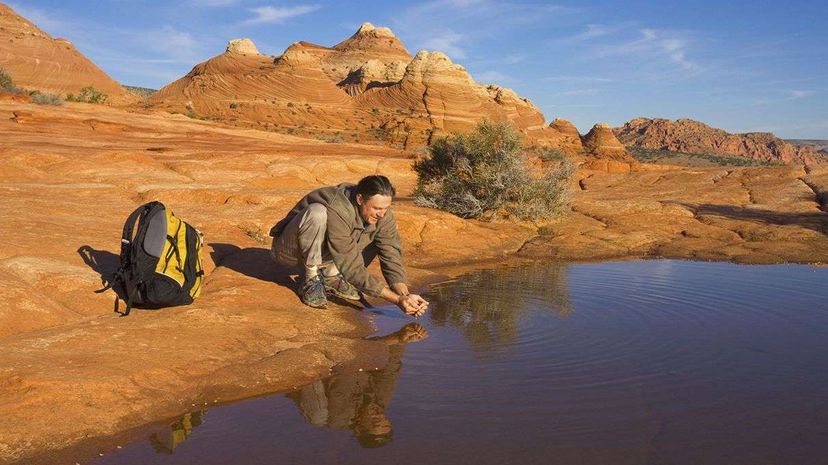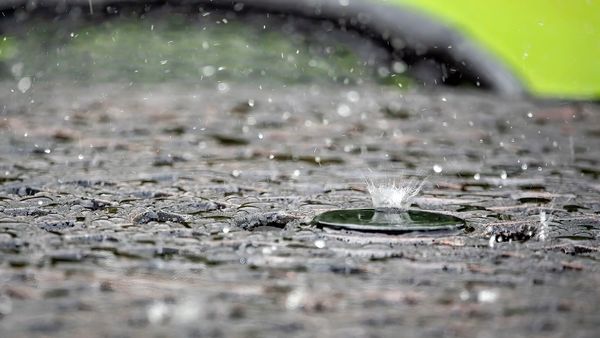
We humans have done pretty well for ourselves, evolutionarily speaking. Check out this sweet empire we've built that renders every other organism on Earth a second-class citizen! With our winning combo of dexterity, intellect, endurance and a scrappy can-do attitude, we've managed to meet all of our material needs, and then some. But although humans are physiologically tricked out in a lot of ways, other animals have evolved capabilities we don't have: sniffing out water sources, for instance.
That ability seems like it would've been of great evolutionary advantage to us, considering that, relative to most animals, humans have exceptionally high water intake requirements. So, if dogs, elephants and vultures seem to be able smell water, why can't we?
Advertisement
Before we get too far down this rabbit hole, let's be clear about two things:
- Science has always characterized the human olfactory sense as being just so-so. Though new research suggests we might be able to differentiate between around a trillion different odors, it's true that modern humans don't interface with the world through our schnozzes as much as some other animals do.
- Water is odorless. This chemical element is a total nonnegotiable requirement for almost every organism on Earth, but it's just a couple of hydrogen atoms stuck with covalent bonds onto an oxygen atom. There's nothing smelly going on there.
So, it seems American environmentalist Edward Abbey was onto something when he wrote in "Desert Solitaire: A Season in the Wilderness," his 1968 memoir: "Long enough in the desert a man like other animals can learn to smell water. Can learn, at least, the smell of things associated with water — the unique and heartening odor of the cottonwood tree, for example, which in the canyon lands is the tree of life."
Because although plain H2O has no scent, chemically pure water also basically never occurs in nature. You've got to make that stuff in a lab. So when other animals sniff out a water source, it isn't the water they're smelling — it might be a water-loving cottonwood tree, or it may be the other stuff in or around or otherwise associated with the presence of fresh water: chemicals, bacteria, algae, plant matter or minerals.

"Humans, like all terrestrial animals, smell volatile, or airborne, compounds," says Dr. Kara Hoover, an anthropology professor at the University of Alaska Fairbanks. Dr. Hoover specializes in the evolution of human smell. "Our Class 1 olfactory receptor genes that detect water-borne odors are switched off, so we can smell water via other compounds in it that get released into the air through a variety of physical processes."
According to Hoover, people have evolved to take pretty detailed visual and auditory inventories of their surroundings, and though our olfactory assessments aren't often as thorough as those of some other animals, we're perfectly capable of detecting a nearby swimming pool when we smell chlorine, and we can pick up on the sulphuric odor of a hot spring, or that mineral-rich, dead-fish thing the ocean's got going on. Like Abbey said, we might be able to teach ourselves to detect water sources if we applied ourselves to learning the smells that go along with it.
Another reason humans might not smell sources of water as well as other animals is because we need a lot of it — our bodies require extravagant amounts of the stuff due to the way we sweat. According to Hoover, walking exclusively on two feet came with some physiological shifts that drastically raised our water requirements.
"One major shift is our ratio of eccrine to apocrine glands — modern humans have more eccrine glands than any other mammal." says Hoover. "These glands release water, and to a lesser extent, sodium from our bodies when we sweat. Shedding water through eccrine glands is less energetically costly than shedding nutrients through apocrine glands, which is why humans will always beat a horse in a long-distance race as long as there is water available."
Hoover suggests that between 4 and 7 million years ago, when our ancestors became bipedal, they became tied to sources of water, meaning they couldn't afford to sniff around — they needed to know where to find reliable sources of water in their home territories or along regularly traveled routes.
"We have no way of knowing, but most likely our original home ranges included water sources that were cognitively mapped," says Hoover. "As ranges expanded, new sources would be located."
And maybe that next watering hole could be found by just following an elephant around for a while. Who needs a good nose when you've got brains?
Advertisement


